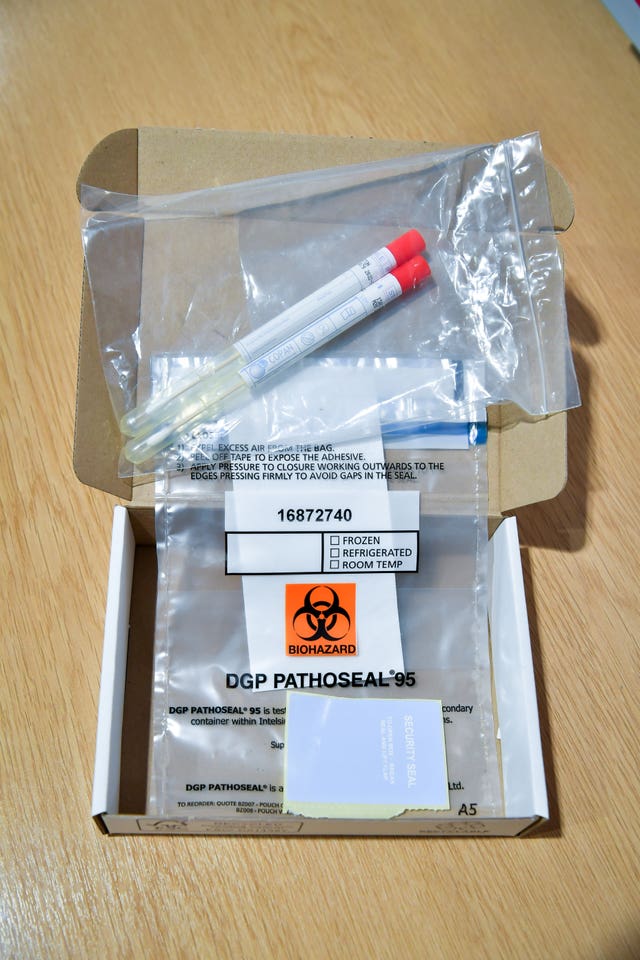Public advised against using home testing products for coronavirus
In the absence of widespread testing, it is expected that there will be a high demand for self-testing.

Public Health England is warning against using tests at home that claim to be able to diagnose coronavirus.
Some manufacturers are selling products for the diagnosis of Covid-19 in community settings, such as pharmacies, the PHE said.
The current view of PHE is that use of these products is “not advised”.
On Saturday, the health body said coronavirus testing will be prioritised for those most at risk of severe illness from the disease, adding that people in the community with a fever or cough do not usually need testing.
PHE, NHS England and the Department of Health and Social Care have agreed “to prioritise testing for those most at risk of severe illness from the virus”, adding: “Our aim is to save lives, protect the most vulnerable, and relieve pressure on our NHS.”
In the absence of widespread testing, it is expected that there will be a high demand for self-testing.
Some of the products for sale look for the virus, while others look for the body’s immune response to the virus.
PHE said such tests are very rapid and can work on a range of specimens including serum, plasma or finger-prick whole blood.
“There is little information on the accuracy of the tests, or on how a patient’s antibody response develops or changes during ovid-19 infection.
“It is not known whether either a positive or negative result is reliable,” the agency said.

“Currently there is no published evidence about the suitability of these tests for diagnosing Covid-19 infection in a community setting.”
Professor Martin Hibberd, professor of emerging infectious disease, London School of Hygiene & Tropical Medicine, said: “In the absence of extensive testing by PHE, there will be huge demand for self-testing.
“While PHE are right to warn against these tests, as they are most likely not accurate, they should be fully evaluating them right now and releasing the data as quickly as possible.
“With data in hand, the message can be more convincing. Accurate testing of all suspected cases would be a great help to the Covid-19 response.
“This would be best performed, or at least supervised, by PHE to ensure accuracy, but also so that PHE can collate the resultant data.
“South Korea has shown that testing of all people with symptoms can aid in containment, by helping to identify who should fully isolate themselves.
“In addition, accurate antibody testing could inform people whether they are part of the herd immunity that is being built up and thus adjust their behaviour accordingly.
“This large scale testing is possible, but would perhaps require a new, less central, approach.”





